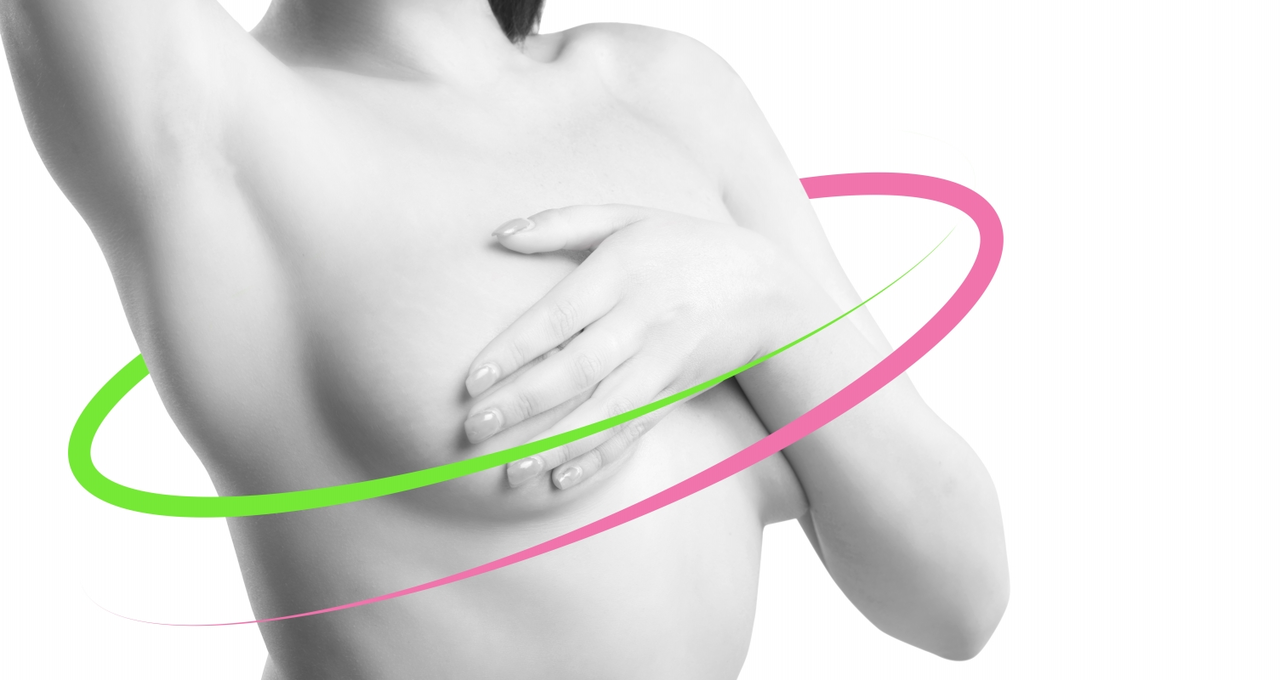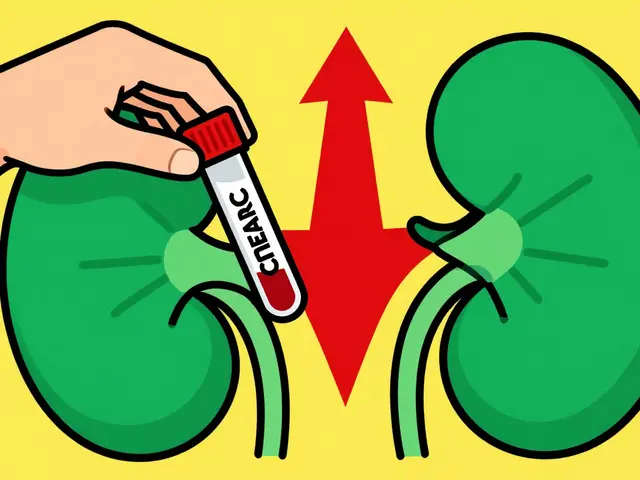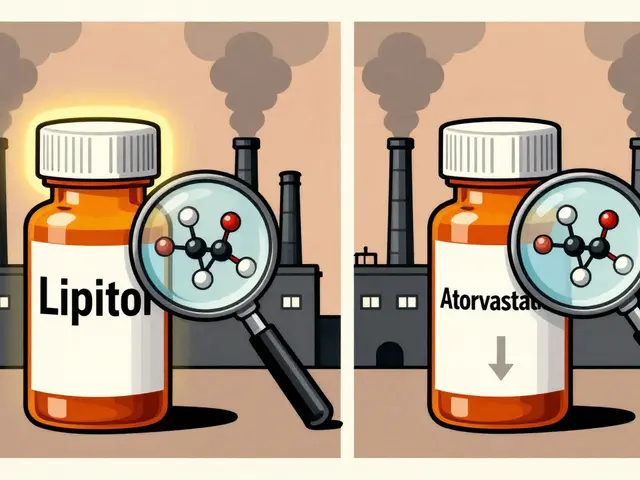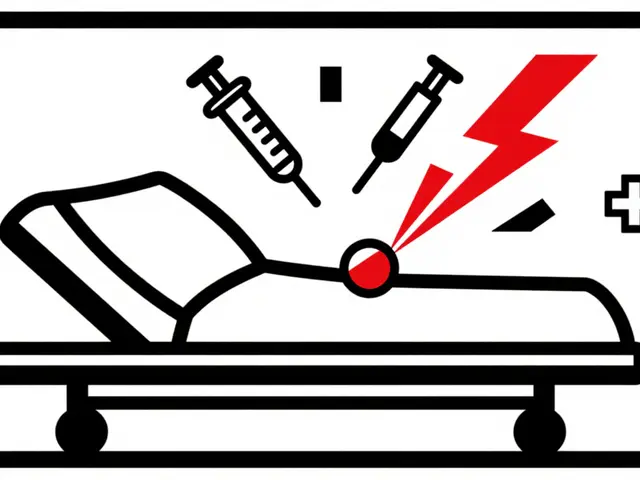Understanding Ethinylestradiol BP
Ethinylestradiol BP is a synthetic form of the hormone estrogen, commonly used in hormonal contraceptives such as birth control pills. It is often used in combination with a progestin hormone to provide effective contraception and prevent unwanted pregnancies. In this section, we will delve into the basics of ethinylestradiol BP, its uses, and how it works in the body to provide contraception.
The primary function of ethinylestradiol BP is to suppress ovulation by inhibiting the secretion of follicle-stimulating hormone (FSH) and luteinizing hormone (LH). These two hormones are essential for the development and release of an egg during the menstrual cycle. By preventing ovulation, ethinylestradiol BP helps to prevent pregnancy from occurring.
The Link between Ethinylestradiol BP and Breast Cancer
Over the years, several studies have investigated the potential link between hormonal contraceptives containing ethinylestradiol BP and the risk of developing breast cancer. Some of these studies have suggested an increased risk, while others have found no significant association. In this section, we will discuss the current evidence on the relationship between ethinylestradiol BP and breast cancer risk.
It is essential to note that the risk of developing breast cancer varies depending on several factors, including age, family history, and lifestyle choices. Some research has suggested that the use of hormonal contraceptives, especially those containing ethinylestradiol BP, may slightly increase the risk of breast cancer. However, this risk appears to decrease once a woman stops using hormonal contraceptives.
How Ethinylestradiol BP May Contribute to Breast Cancer Development
Ethinylestradiol BP, as a synthetic estrogen, has been hypothesized to contribute to breast cancer development by promoting the growth of estrogen-sensitive breast cancer cells. In this section, we will explore the potential mechanisms by which ethinylestradiol BP may contribute to breast cancer risk and the current research on this topic.
Estrogen-sensitive breast cancer cells have receptors that bind to estrogen, promoting cell growth and division. By providing an additional source of estrogen, ethinylestradiol BP may increase the likelihood of breast cancer development in women with a predisposition for the disease. However, it is still unclear whether this effect is significant enough to contribute to an increased risk of breast cancer in the general population.
Factors Influencing the Risk of Breast Cancer with Ethinylestradiol BP Use
As mentioned earlier, the risk of developing breast cancer varies depending on numerous factors. In this section, we will discuss some of the factors that may influence the risk of breast cancer in women using hormonal contraceptives containing ethinylestradiol BP.
Age, duration of use, and family history of breast cancer are some of the factors that may influence the risk of breast cancer in women using hormonal contraceptives. Additionally, the type of progestin used in combination with ethinylestradiol BP may also play a role in determining breast cancer risk. It is essential for women to discuss their individual risk factors and contraceptive options with their healthcare provider to make informed decisions about their reproductive health.
Benefits of Hormonal Contraceptives Containing Ethinylestradiol BP
Despite the potential link between ethinylestradiol BP and breast cancer risk, hormonal contraceptives containing this synthetic estrogen offer several benefits for women. In this section, we will discuss some of the advantages of using hormonal contraceptives containing ethinylestradiol BP.
One of the primary benefits of hormonal contraceptives containing ethinylestradiol BP is their effectiveness in preventing unwanted pregnancies. They also help regulate menstrual cycles, reduce menstrual pain, and decrease the risk of ovarian and endometrial cancer. Additionally, hormonal contraceptives can also help manage symptoms of polycystic ovary syndrome (PCOS) and endometriosis.
Risks and Side Effects of Hormonal Contraceptives Containing Ethinylestradiol BP
While hormonal contraceptives containing ethinylestradiol BP offer several benefits, they also come with potential risks and side effects. In this section, we will discuss some of the risks and side effects associated with the use of hormonal contraceptives containing ethinylestradiol BP.
Some common side effects of hormonal contraceptives containing ethinylestradiol BP include nausea, breast tenderness, and mood changes. It is also essential to be aware of the increased risk of developing blood clots, stroke, and heart attack, especially in women who smoke or have a history of cardiovascular disease. As discussed earlier, there may also be a potential link between ethinylestradiol BP use and breast cancer risk.
Alternative Contraceptive Options
If you are concerned about the potential link between ethinylestradiol BP and breast cancer risk, it is essential to discuss alternative contraceptive options with your healthcare provider. In this section, we will provide an overview of some of the alternative contraceptive methods available.
There are several non-hormonal contraceptive options available, including barrier methods (such as condoms, diaphragms, and cervical caps), copper intrauterine devices (IUDs), and fertility awareness-based methods. Additionally, there are hormonal contraceptives that do not contain ethinylestradiol BP, such as progestin-only pills, hormonal IUDs, and contraceptive implants. Your healthcare provider can help you determine the most suitable contraceptive method based on your individual needs and risk factors.
Conclusion
In conclusion, the link between ethinylestradiol BP and breast cancer risk remains a topic of ongoing research and debate. While some studies suggest a potential increased risk, others have found no significant association. It is essential for women to discuss their individual risk factors and contraceptive options with their healthcare provider to make informed decisions about their reproductive health. Additionally, maintaining a healthy lifestyle, getting regular exercise, and having routine breast cancer screenings can help reduce the overall risk of developing breast cancer.







Varun Gupta
May 7, 2023 AT 10:17lol so now birth control is secretly run by Big Pharma to make us all get breast cancer? 🤡 I saw a guy on TikTok say the moon controls estrogen levels and this is just part of the plan. 🌕💊
Erick Horn
May 8, 2023 AT 22:23Of course it causes cancer. Everything does. Also, you're probably still using plastic straws.
Lidia Hertel
May 9, 2023 AT 20:35I'm from the UK and my mum used the pill in the 80s and she swears it saved her life-no crazy PMS, regular cycles, and she never got ovarian cancer. 🌸 But yeah, I get the fear. I had my own scare last year with a benign lump and it was terrifying. Talk to your doc, get screened, don't panic. We've come so far with women's health, but the fear-mongering online? It's exhausting. 💪❤️
Chris Bock
May 10, 2023 AT 10:13The body is a system. Hormones are signals. Signals can be misread. That's all.
Alyson Knisel
May 10, 2023 AT 20:29i mean... its not like we have a choice right? like if you dont want to get preggo you gotta do something. but also like... cancer? that sounds scary. idk. i just take mine and try not to think about it
Jelisa Cameron- Humphrey
May 12, 2023 AT 01:02From a clinical pharmacology standpoint, the relative risk elevation for breast cancer with EE-containing OCPs is approximately 1.2-1.3x over 5 years of use, with a return to baseline within 5-10 years of discontinuation. The absolute risk remains low in young women without BRCA mutations or strong family history. Context matters: the protective effect against endometrial and ovarian cancer is more robust (RR 0.6-0.7). Risk-benefit analysis must be individualized.
Lee Lach
May 12, 2023 AT 06:22This is exactly what the WHO and FDA don't want you to know. The pharmaceutical-industrial complex has spent billions suppressing the truth. Ethinylestradiol is not a hormone-it's a molecular weapon designed to feminize populations and control reproduction. The breast cancer link? It's not correlation. It's causation. And they're laughing all the way to the bank.
Tracy McKee
May 13, 2023 AT 11:41people dont even know what estrogen is and they take pills like candy i swear
Abigail M. Bautista
May 14, 2023 AT 22:49i just take it
Rohan Puri
May 15, 2023 AT 17:27why are we even talking about this its not like anyone cares about the science just give me the pill and shut up
Mandeep Singh
May 15, 2023 AT 18:12India has better birth control methods. Traditional herbs. No chemicals. No cancer. Why are we importing Western poison?
Chris Bellante
May 17, 2023 AT 11:48In West Africa, we use the copper IUD. No hormones. No drama. Just peace. Why are we still playing with estrogen like it's a magic potion? The science is clear-hormonal disruption is a slow burn. But hey, if you wanna glow up with a side of risk, go ahead.
Nicole Manlapaz
May 17, 2023 AT 13:51I had endometriosis and the pill was a lifesaver. My pain went from 8/10 to 2/10. I know the breast cancer thing is scary but I also know that not treating my condition would've led to infertility. I talk to my doctor every year. That's the real key. Not fear. Not hype. Just communication. You got this 💕
Frederick Staal
May 18, 2023 AT 19:28I've studied this for 17 years. The data is manipulated. The journals are paid for. The FDA is compromised. The estrogen levels in tap water are higher than in birth control pills. The real enemy isn't ethinylestradiol-it's the systemic erosion of natural biological rhythms. And yes, I've filed FOIA requests. No one will answer.
erin orina
May 20, 2023 AT 18:25i just want to say thank you for writing this so clearly. i was so scared after reading that one article last week but this helped me feel less alone. you're doing great 💛
Lisa Uhlyarik
May 20, 2023 AT 21:02you people are so naive i bet you think vaccines are safe too and that the sun doesnt cause cancer and your yoga mats arent full of phthalates
Kelley Akers
May 21, 2023 AT 05:26I read the original 1975 Lancet paper. The risk is real. But you? You're probably still drinking oat milk and wearing Birkenstocks. You don't deserve to have children anyway.
Cameron Perry
May 21, 2023 AT 10:54so like... if i stop taking it does the risk go away? or is it permanent? like i just wanna know the facts not the fear
JOANNA WHITE
May 22, 2023 AT 01:48i took the pill for 7 years. no cancer. no clots. just better skin and less cramps. my doc checked my family history and we decided it was worth it. every body's different. trust your provider. not the internet. 🤝